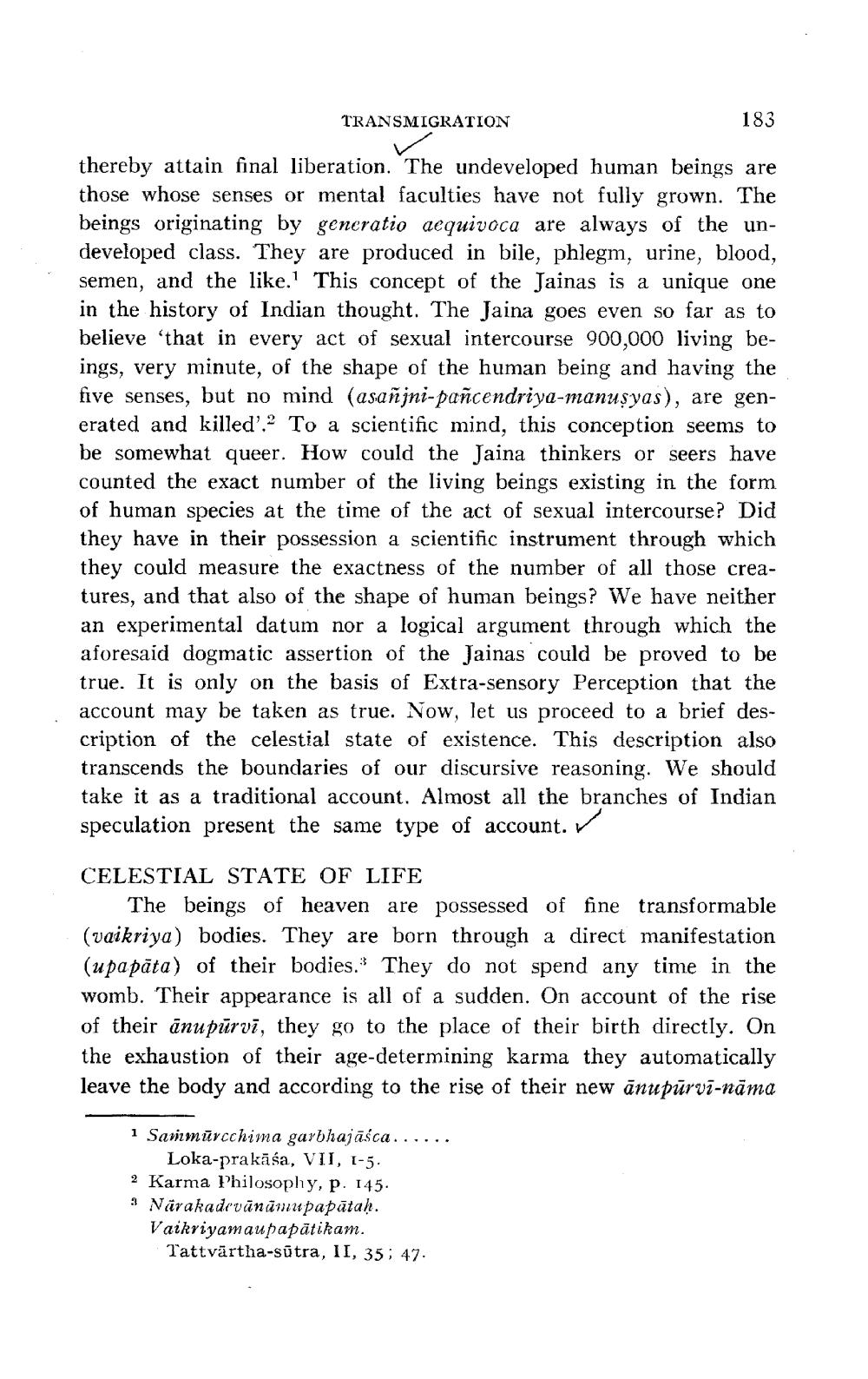________________
TRANSMIGRATION
thereby attain final liberation. The undeveloped human beings are those whose senses or mental faculties have not fully grown. The beings originating by generatio aequivoca are always of the undeveloped class. They are produced in bile, phlegm, urine, blood, semen, and the like.' This concept of the Jainas is a unique one in the history of Indian thought. The Jaina goes even so far as to believe that in every act of sexual intercourse 900,000 living beings, very minute, of the shape of the human being and having the five senses, but no mind (asañjni-pañcendriya-manuṣyas), are generated and killed'. To a scientific mind, this conception seems to be somewhat queer. How could the Jaina thinkers or seers have counted the exact number of the living beings existing in the form of human species at the time of the act of sexual intercourse? Did they have in their possession a scientific instrument through which they could measure the exactness of the number of all those creatures, and that also of the shape of human beings? We have neither an experimental datum nor a logical argument through which the aforesaid dogmatic assertion of the Jainas could be proved to be true. It is only on the basis of Extra-sensory Perception that the account may be taken as true. Now, let us proceed to a brief description of the celestial state of existence. This description also transcends the boundaries of our discursive reasoning. We should take it as a traditional account. Almost all the branches of Indian speculation present the same type of account.
CELESTIAL STATE OF LIFE
The beings of heaven are possessed of fine transformable (vaikriya) bodies. They are born through a direct manifestation (upapata) of their bodies. They do not spend any time in the womb. Their appearance is all of a sudden. On account of the rise of their anupūrvī, they go to the place of their birth directly. On the exhaustion of their age-determining karma they automatically leave the body and according to the rise of their new anupūrvī-nāma
1 Sammurcchima garbhajaśca..... Loka-prakāśa, VII, 1-5.
183
2 Karma Philosophy, p. 145.
a Narakadevānāmupapātaḥ. Vaikriyamaupapātikam.
Tattvärtha-sūtra, II, 35; 47.




